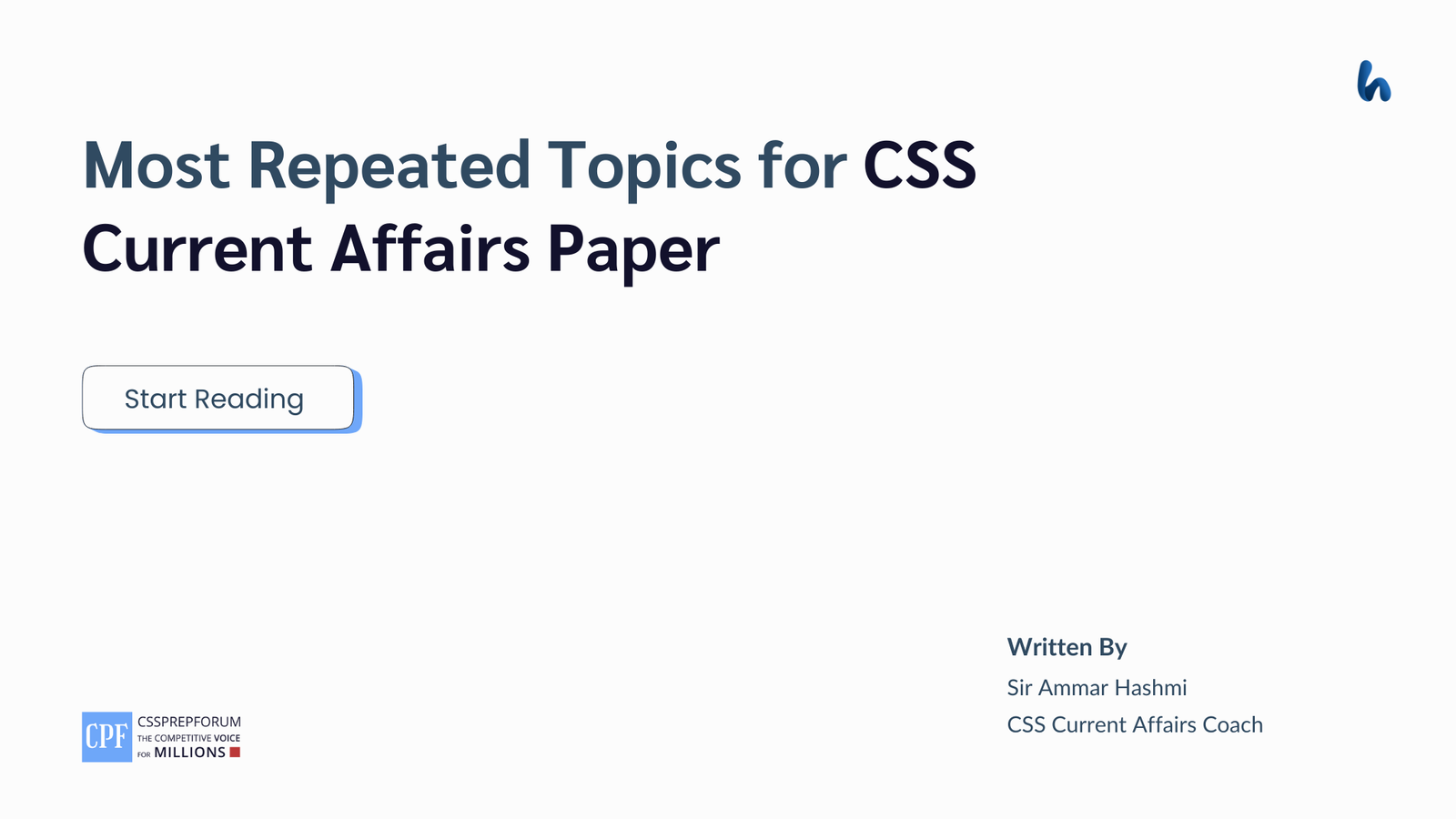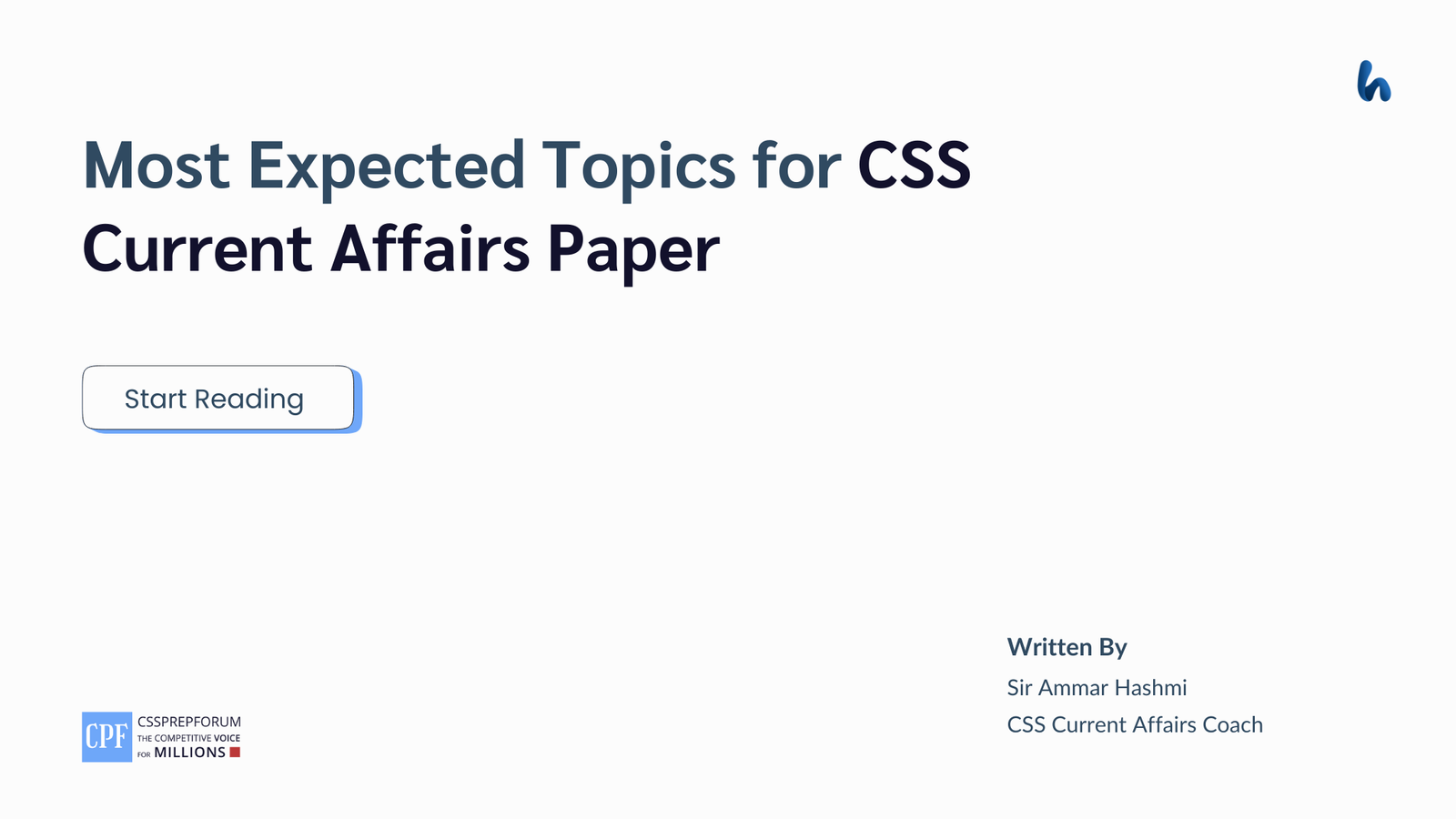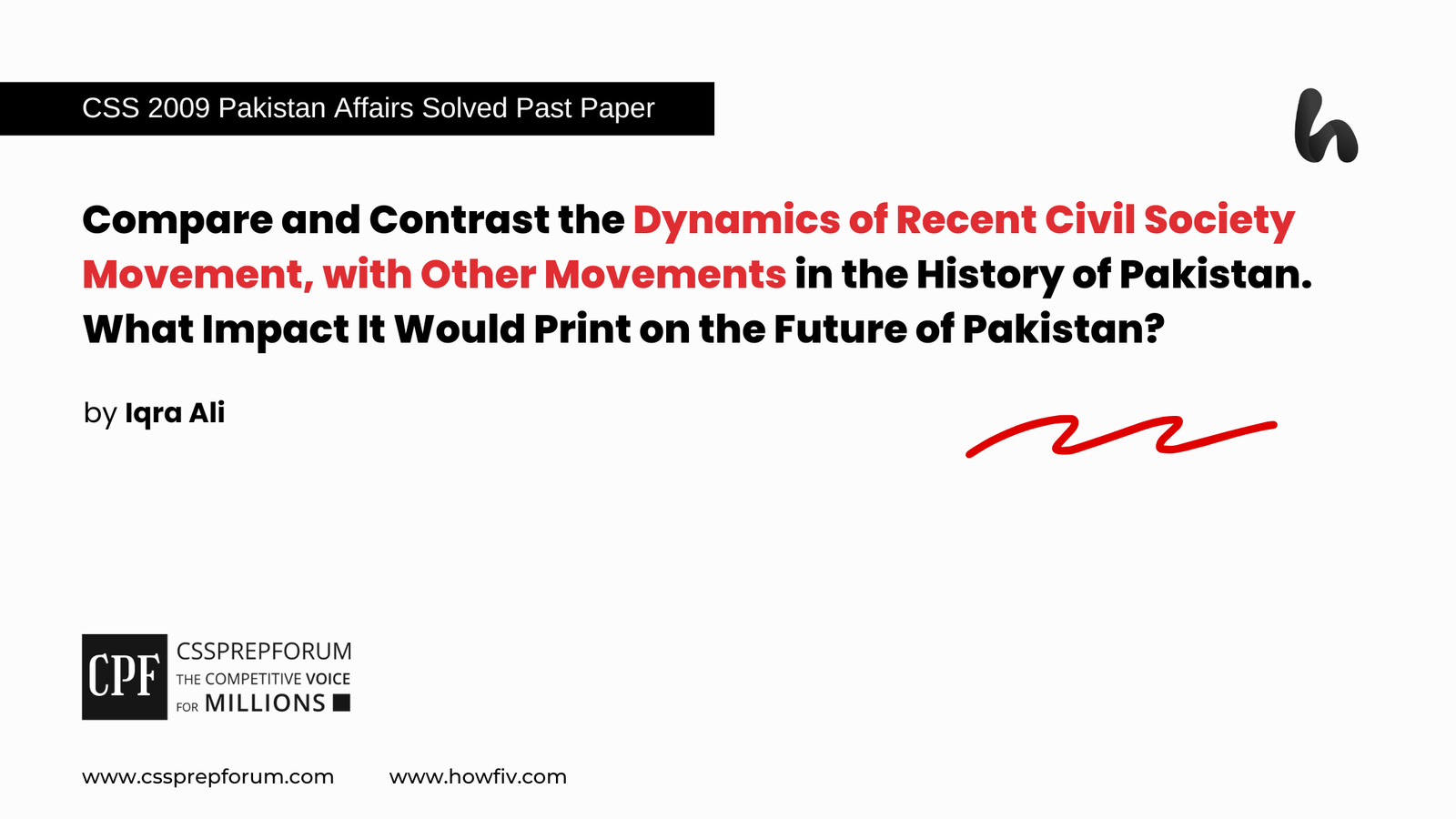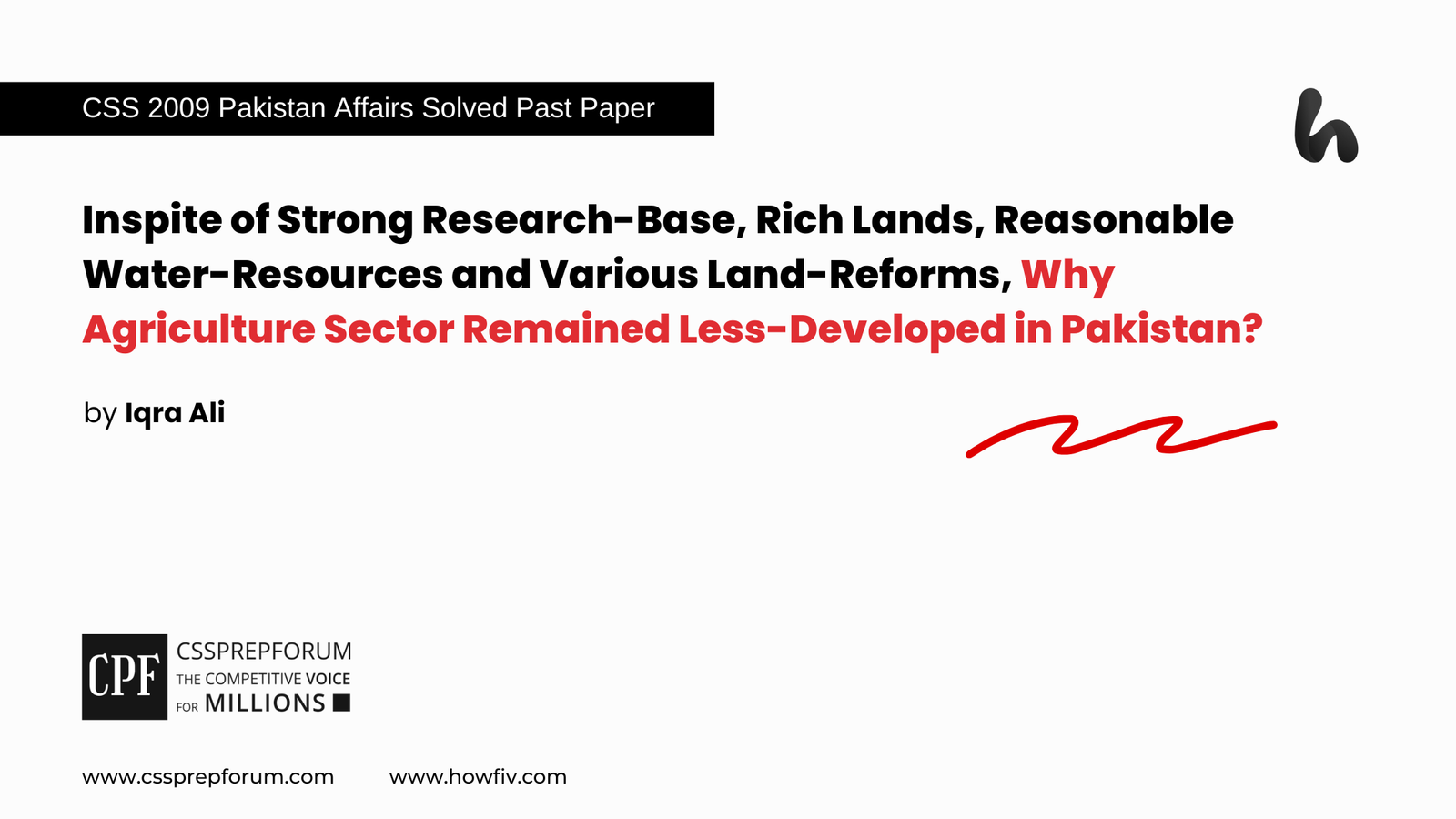CSS Solved Islamiat Past Papers | What is the Quranic Argument on Life Hereafter? What are its Impacts on the Individual and Collective life of a Human Being?.
The following question of Islamiat is solved by Miss Ayesha Irfan, the highest scorer in CSS Islamiat. Moreover, the question is attempted on the same pattern taught by Sir Syed Kazim Ali to his students, scoring the highest marks in compulsory subjects for years. This solved past paper question is uploaded to help aspirants understand how to crack a topic or question, how to write relevantly, what coherence is, and how to include and connect ideas, opinions, and suggestions to score the maximum.

Question Breakdown
The examiner has asked three things in the question
- The Quranic arguments on life hereafter
- Impacts of life hereafter concept on the individual life
- Impacts on the collective life of human beings
In this question, we will first discuss the concept of life hereafter, its verbal and literal meaning, an illustration from daily life examples, and its reference from the Quran. After that, the effects of this concept on the individual and collective life of a human being will be elaborated.
OUTLINE
1- Introduction
2- Verbal and literal meaning
3- An illustration from daily life examples
- ✓ Worker and his wages
- ✓ An example of the examination system
- ✓ The concept of reward and curse of any deed
4- Quranic arguments on the life hereafter
5- Impacts on individual life
- ✓ Attaining piousness as the ultimate reward
- ✓ Sense of accountability
- ✓ Sense of responsibility
- ✓ It develops a sense of Reformation
- ✓ Character building
- ✓ Salvation from Evils and inclination toward goodness
- ✓ Spending wealth for the cause of Allah
- ✓ An idea about the Nature of the world
- ✓ Elimination of pride and arrogance
6- Impacts on the collective life of human beings
- ✓ The social contract in the society
- ✓ A sense of fraternity and brotherhood in society
- ✓ Development of tolerance and forgiveness
- ✓ Rule of law
- ✓ Accountability and social justice: An outcome of life hereafter concept
- ✓ Elimination of social evils
7- Conclusion

Answer to the Question
Introduction:
The concept of life hereafter is one of the basic beliefs of the religion Islam. One cannot be a Muslim if he denies the concept of life hereafter and the Day of Judgment. According to the human intellect, there should be a result of any doing. This world would end on the last day, called doomsday, when every living soul would die. The hereafter would start when everyone would be revived by Allah and rewarded or punished, respectively, according to their acts. Belief in the hereafter gives meaning to life. It means our life is accountable to the highest authority that is neither biased nor ignorant. The inherent quality of Justice which exists in all human beings can only be fulfilled if there is a Day of Resurrection. In this world, true justice is not always present, and some people don’t get the justice they deserve, but the knowledge that their God is watching and will give them justice is sufficient to wait and live their life in patience and peace. The life hereafter concept has multiple positive impacts on the individual and collective life of human beings by bringing spiritual and moral nourishment. It helps to spread an atmosphere of virtue by the negation of vicious acts.
Verbal and Literal Meaning of “Life Hereafter” Concept:
- ✓ Verbal meaning:
The word used for the life hereafter in the Holy Quran is “you-ul-Qiyamah” means the “Day of Judgment”
- ✓ Literal meaning:
In the literal sense, the concept of life hereafter means “The Day of Requital which means our life is accountable to the highest authority that is neither biased nor ignorant. We will be rewarded or punished according to our deeds, and everyone will be treated and judged the same way”
An Illustration from Daily Life Examples
An example of an examination system is a good example to explain the concept of life hereafter. As a student has to give answers to asked questions, and he will be passed or failed according to his performance in the exams and can also get a position on his excellent performance. Similarly, in the life hereafter, everyone will be rewarded or punished according to their deeds in this world.
The concept of wages of a worker also helps to understand the concept and judgment in the life hereafter. As every worker gets payment for his work at the end of the day, similarly, everyone has to present himself before Allah to receive the payment according to their struggle.
Quranic Arguments on Life Hereafter
In the Holy Book Quran, the reality of life hereafter has been mentioned many times. The following words have been used in Quran for this belief
“Youm-ul-Baas” (The Day of rising of the dead)
and
“Youm-ul-Qiyamah” (The Day of Resurrection)
As stated in Quran in surah Qiyamah
لَآ أُقْسِمُ بِيَوْمِ ٱلْقِيَـٰمَةِ
“I do swear by the Day of Judgment”
“Youm-u-Deen” (The Day of Judgment)
As mentioned in Holy Quran in Surah Fatiha
مَـٰلِكِ يَوْمِ ٱلدِّين
“Master of the Day of Judgment”
In the Holy Quran, Allah Almighty promises that
كُلُّ نَفْسٍ ذَآئِقَةُ الْمَوْت
“Every soul will taste death”
Religion Islam taught us that there is life after death that has no ending position. According to the teachings of Islam, when confronted with a calamity and when someone dies, one should say:
إِنَّا لِلّهِ وَإِنَّـا إِلَيْهِ رَاجِعونَ
(Quran 2:156)
“To God, we belong and to Him, we shall return”
The events of happening of Qiyamah and the concept of life hereafter has mentioned in the Quran:
اِذَا السَّمَآءُ انْفَطَرَتۡۙ
(82:1)
“When the heaven is split asunder”
وَاِذَا الۡكَوَاكِبُ انْتَثَرَتۡۙ
(82:2)
“When the stars are scattered”
وَاِذَا الۡبِحَارُ فُجِّرَتۡۙ
(82:3)
“When the seas are made to burst forth”
وَاِذَا الۡقُبُوۡرُ بُعۡثِرَتۡۙ
(82:4)
“And when graves are laid open”
عَلِمَتۡ نَفۡسٌ مَّا قَدَّمَتۡ وَاَخَّرَتۡؕ
(82:5)
“Everyone shall know all his deeds, both the earlier and the later”
The word Qiyamah which means Resurrection occurs 68 times in the Holy Quran, and it refers to the Day of Judgment, when every human being must have to be answerable to Almighty Allah for his Deeds, either good or bad that it does in his life.
“He (Allah) who created death and life, so that He may test you as to which of you is better in deeds. And He is the All-Mighty, the Most-Forgiving”
(67:2)
“Certainly, they see it (resurrection) as distant, but we see it as near”
(70:6–7)
The scenario of accountability of everyone according to their deeds is mentioned in the Holy Quran in Surah Yaseen
إِنَّا نَحۡنُ نُحۡيِ ٱلۡمَوۡتَىٰ وَنَكۡتُبُ مَا قَدَّمُواْ وَءَاثَٰرَهُمۡۚ وَكُلَّ شَيۡءٍ أَحۡصَيۡنَٰهُ فِيٓ إِمَامٖ مُّبِين
“Indeed, it is we who bring the dead to life and record what they have put forth and what they left behind, and all things we have enumerated in a clear register”
Similarly, the word Hereafter appears in the Holy Quran 118 times and refers to the rewards and punishments that each human will receive on the Day of Judgment according to his deeds, eternal life in the gardens of Heaven, or an everlasting albeit torturous lie in the fires of hell. Allah (SWT) says in the Holy Quran
“On the Day of Judgment, every individual will be resurrected to account for their lives. God describes this event in the Quran, “On that day, people will come forward in separate groups to be shown their deeds: whoever has done an atom’s weight of good will see it, but whoever has done an atom’s weight of evil will see that.”
(Quran, 99:6-8)
Allah Almighty states in the Holy Quran,
“O mankind! if ye doubt the Resurrection, (consider) that We created you out of the dust, then out of sperm out of a leech-like clot, then out a morsel of flesh, partly formed and partly unformed, so that We may manifest (Our Power) to you, and We cause whom We will to rest in the wombs for an appointed term, do We bring you out as babes, then (foster you) that ye may reach your age of full strength; and some of you are called to die, and some are sent back to the feeblest old age so that they know nothing after having known (much)”
(Al-Hajj, 5).
In the Holy Quran Almighty Allah says
“Indeed, the death from which you flee – indeed, it will meet you. Then you will be returned to the Knower of the unseen and the witnessed, and HE will inform you about what you used to do.”
(Quran, 62:08)
In the Holy Quran Allah (SWT) says
“And the Moon is eclipsed, and the Sun and the Moon are fused, on that Day man will ask, “Where can I run?” No indeed! There will be no safe place. That Day, the only resting place will be your Lord.
(Quran 75: 8-12)
Impacts of Belief in the Hereafter on the Life of an Individual
The impacts of belief in the hereafter life on the individual being are the following;
- Attaining piousness as the ultimate reward:
Indeed, the believers have a staunch belief in the hereafter life. Believing in the hereafter increases the piousness of an individual. He believes that one day he will meet his creator and that everything he does is for the hereafter. And truly in the Surah Al Baqarah,
وَٱلَّذِينَ ءَامَنُوٓاْ أَشَدُّ حُبّٗا لِّلَّهِ
“They love them as they should love Allah”
- Sense of Accountability
The concept of punishment and reward after death keeps man hopeful and makes him think before doing any evil act. It enhances a sense of accountability and answerability in people, prompting them to be very sensible and thoughtful of their actions towards every single soul.
“Whether you show what is within yourselves or conceal it, Allah will bring you to account for it. Then He will forgive whom He wills and punish whom He wills, and Allah is over all things competent” (Surah Al Baqarah, Verse-284)
- Sense of Responsibility
The thought of the hereafter develops a sense of responsibility in an individual. Though human beings are prone to mistakes, this concept makes them careful as every act of theirs has an outcome of some sort. An individual is asked to be mindful of his tongue and all of his other senses, be it seeing, hearing, touching, or thinking, because he has to be accountable for everything, and he has to harvest in the hereafter what he is sowing in this world. As stated by the Holy Prophet (PBUH)
“The world is the field of the hereafter”
- Character Building
The belief in Hereafter also builds a character of an individual, which promotes good acts and good deeds. The believer knows that he is going to face the music at some stage or another; therefore, he strives to do well. The believer takes care of his doings and tries not to disobey the commandments of Allah.
“They arise from their beds, they supplicate their Lord in fear and aspiration, and from what we have provided them, they spend”
(Surah Sajdah)
- Sense of Reformation
The belief in the hereafter makes a man reform himself first. Once he reforms himself, he tries to reform society with the teachings of the Prophet and the message of Allah. He tries to correct people from doing wrongful acts and motivates them towards good deeds. In Quran, Allah Almighty has stated that:
تَأْمُرُونَ بِٱلْمَعْرُوفِ وَتَنْهَوْنَ عَنِ ٱلْمُنكَرِ
(Surah Al Imran)
“You encourage good, forbid evil”
- Salvation from Evils and Inclination towards Goodness
The believer tries to stay away from the evil acts because he knows that he has to meet his creator, and one day all of this will come to an end. The way the Quran describes the punishment chills down the spine of every individual, whereas the thought of heaven makes one hopeful and gives man the drive to do good deeds.
- Spending Wealth for the Cause of Allah
A true believer of the hereafter knows that sooner or later, he has to die. Therefore, he spends in the way of Allah by paying Zakat and giving alms to the poor. A believer knows that his alms will not only purify his money in this world but also the same money will be beneficial for him in the hereafter. As stated in Quran:
وَمِمَّا رَزَقۡنَٰهُمۡ يُنفِقُونَ
(Surah Sajdah)
“And from what we have provided them, they spend”
- An idea about the Nature of the world
A staunch believer accepts the non-eternal nature of the world. He knows that all of the creation of God will end as He, the Almighty, says in the Quran:
“Everyone on it (earth) is to perish.”
Knowing this, a man does not attach his whole heart to this world. He keeps himself doing good and not being greedy and materialistic. This concept makes a man realize the actual purpose of his birth and life in this world. Quran describes it in this way:
وَمَا خَلَقْتُ ٱلْجِنَّ وَٱلْإِنسَ إِلَّا لِيَعْبُدُونِ
“I did not create jinn and humans except to worship me (ALLAH)”
- Elimination of Pride and Arrogance
Elimination of pride and arrogance comes as a believer understands that what he has is a blessing from Allah Almighty. In a hadith stated by the Prophet (PBUH):
“When Allah gives, there’s no one who can stop Allah from giving, and when Allah abstains, there’s no one who can give (to the man).”
(Al Hadees)
This suggests that man should be thankful for what he has. Believing in the hereafter makes man think of what Allah has given him through His bounties.
- Strengthening of patience in an individual
Belief in the hereafter enables a man to bear trials and tribulations with patience and forbearance so that man emerges from such trials shining like gold emerging from the furnace. The concept of life hereafter makes a man stronger, and he calls Allah in case of any difficulty. It is mentioned in Quran as:
“Who, when faced with a disaster, say, “Surely to Allah, we belong, and to Him, we will all return.”
(Surah Baqarah)
Impacts of Belief in Hereafter on Society
The impacts of life hereafter belief on the collective life of human beings are also very fruitful, and these include
- The social contract in the society
A society that believes in the hereafter and the Day of Judgment knows that everything will end one day. It establishes social control in society. The society acts in unity and adheres to its policies. Every person is treated with the same importance. As advised in Quran:
وَٱعۡتَصِمُواْ بِحَبۡلِ ٱللَّهِ جَمِيعٗا
(Al Quran)
“And hold firmly to the rope of Allah all together”
وَلَا تَفَرَّقُوا
(Al Quran)
“And do not become divided
- A sense of fraternity and brotherhood in society
The concept of hereafter life brings an establishment of fraternity and brotherhood among people of a society. As referred to in Quran:
إِنَّمَا ٱلۡمُؤۡمِنُونَ إِخۡوَة
(Surah Al Hujrat)
“The believers are but brothers”
- An atmosphere of tolerance and forgiveness
Whatever happens, a believer of the hereafter holds steadfast and does not be unthankful for whatever he has. This collective forbearance brings inside the society a system of tolerance and makes the society tolerant against tyranny or any other kind of oppression. Society is caring and keeps in mind every person in it.
- The rule of law
There is no difference between the rich and the poor in a society that believes it will end someday. Every individual in society follows the law and doesn’t try to disobey it by being rebellious. A pious person would always keep reminding society of the inevitable destination of mankind and how everyone should behave according to Allah’s manifestations.
- Accountability and social justice: An outcome of life hereafter concept
When a belief in the life hereafter prevails in a society in a true sense, then accountability and social justice become the realistic norms of a society. The rule of law brings accountability and equality in society by providing justice to everyone without any discrimination. The commandments of Allah Almighty in the Holy Quran about justice are followed, which the people in a society obey to get heaven as a reward.
إِنَّ ٱللَّهَ يَأۡمُرُ بِٱلۡعَدۡلِ
(Al Quran)
“Indeed, Allah orders justice”
وَأَقۡسِطُوٓاْ
(Al Quran)
“And act justly”
إِنَّ ٱللَّهَ يُحِبُّ ٱلۡمُقۡسِطِين
(Al Quran)
“Indeed, Allah loves those who act justly”
- Elimination of Social evils
All kinds of social evils are born into this world when a person forgets that he has to answer for his every action and considers life hereafter an illusion. But, when the firm belief in the life hereafter prevails in society and everyone knows that they have to be answerable before Allah in the end, then there will be an elimination of all social evils from society. Ultimately a society prospers and becomes a place well-habitual.
Conclusion
To cut a long story short, the belief in the Hereafter naturally has a great influence on the life of a believer in an individualistic and collective sense. When everyone knows that Allah is watching all their actions, their behavior will be responsible. People will always endeavor to lead their life by the will of Allah Almighty and will inevitably avoid any action which will incur Allah’s displeasure. Furthermore, the concept of the Hereafter elaborates on the purpose of the life of a believer. One who firmly believes in this concept will not give in to greed and other social evils. He will not be a materialist, for he knows that this material life will surely come to an end with death, whereas there will be a whole eternity before him in the afterlife. So, the life hereafter belief has many positive impacts on the individual and collective life of human beings from his birth to death.
CSS Solved Past Papers’ Essays
Looking for the last ten years of CSS and PMS Solved Essays and want to know how Sir Kazim’s students write and score the highest marks in the essays’ papers? Then, click on the CSS Solved Essays to start reading them.
CSS Solved Essays
CSS 2023 Solved Islamiat
| 2- | What is the Quranic argument on life Hereafter? What are its impacts on the individual and collective life of a human being? |
| 3- | Discuss the Holy Prophet’s (PBUH) role as a Model for Military Strategy. |
| 4- | Elaborate on the rights of daughters granted by Islam and how these are denied by Muslims in the contemporary world. |
| 5- | Defind Ijma (consensus) and explain its different kinds. Can legislation by a parliament of an Islamic state be regarded as a valid consensus? |
| 6- | Analyze the Charter of Madina as a social contract. |
| 7- | What are the motives of extremism in Pakistan? How can society get rid of extremism by following the teachings of Islam? |
| 8- | Write Notes on the following: a. Human rights in the light of the Sermon of Farewell Pilgrimage. b. Social Justice in an Islamic Society. |

Articles Might Interest You!
The following are some of the most important articles for CSS and PMS aspirants. Click on any to start reading.












